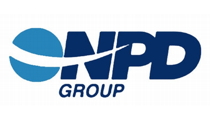This website uses cookies so that we can provide you with the best user experience possible. Cookie information is stored in your browser and performs functions such as recognising you when you return to our website and helping our team to understand which sections of the website you find most interesting and useful.
Business News Digital Top Stories
NPD report puts focus on mobile music piracy
By Chris Cooke | Published on Tuesday 25 March 2014
So people, can you all cope with battling yet another new front in the long-running music piracy war? Though don’t worry, enemy number one remains the same. Yes, it’s big, bad, bold, belligerent, boisterous, bullish, bullying, bulldozing, brash, brutal, but brilliant Google.
Research firm NPD Group has thrown the spotlight on the rising trend of smartphone-based music piracy, suggesting that it’s on the humble mobile device that record companies and music publishers are facing their next big piracy challenge, as an increasing number of apps appearing on the scene that enable users to tap into free and usually unlicensed sources of music content.
According to Re/Code, the research company says in a new report that “some 27 million people in the US have used mobile applications to get at least one song in the past year, much of it believed to be unauthorised”. Meanwhile NPD analyst Russ Crupnick is quoted as saying: “In the beginning, we had feature phones with ringtones and very slow networks. As the technology improves, it becomes a free for all for someone who wants free music files”.
Of course the shift of online piracy from PCs to net-connected phones has been anticipated for some time, though bandwidth issues and inflexibilities in the way the mobile internet initially worked originally made accessing unlicensed music services this way less attractive. But smartphones, faster connections, more plentiful mobile data packages and user-friendly apps connected to dubious banks of music files are helping overcome the limitations.
Which means that while the growth of the mobile internet as been an opportunity for the music business to date – especially in the burgeoning streaming market, with subscription services being able to charge a premium for mobile functionality – labels and publishers are starting to discover the down side, not least because the industry’s now pretty sophisticated anti-piracy machine (with its takedown notice issuing and domain-blocking tactics) is generally focused on PC-based piracy services.
Though the growth in mobile piracy noted by NPD in its new report hasn’t gone entirely unnoticed by the music rights sector. For them, the immediate target is the apps that enable people to access unlicensed content on their smartphones with minimum effort, some of which look like pretty legitimate set-ups. And that means targeting the stores that distribute these apps, and that mainly means Apple and Google’s app distribution platforms.
Both app stores have terms and conditions that forbid copyright infringement, though there are the usual ambiguities as to what constitutes infringing activity (given many apps are contributory rather than direct infringers), and the onus is often on the rights owners to spot the offenders. Though insiders say that because Apple scrutinises new apps more closely, it is the Google app store where the real problems lie.
One popular Android app is Music Maniac which, according to Re/Code, the Recording Industry Association Of America has already asked be removed from the Google store multiple times, but so far without success.
Though, of course, the aforementioned ambiguities about the liabilities of app makers like those behind Music Maniac might be behind the web giant’s reluctance to act, most legal precedent to date on so called contributory infringement online focusing on P2P software, BitTorrent search engines and link communities, and digital locker services.
Nevertheless, it adds another gripe to add to the music industry’s Google list; with the music industry already of the opinion the company is doing too little to stop the listing of clearly copyright infringing services in its search results.






